Vitamin C is a water-soluble vitamin that is well-known for its role in boosting immune health. This vitamin is found in citrus fruits as well as strawberries, tomatoes, potatoes, Brussels sprouts, broccoli, and spinach. However, if you feel like you don’t eat these foods often enough, then you may choose to take a dietary supplement in capsule or chewable form.
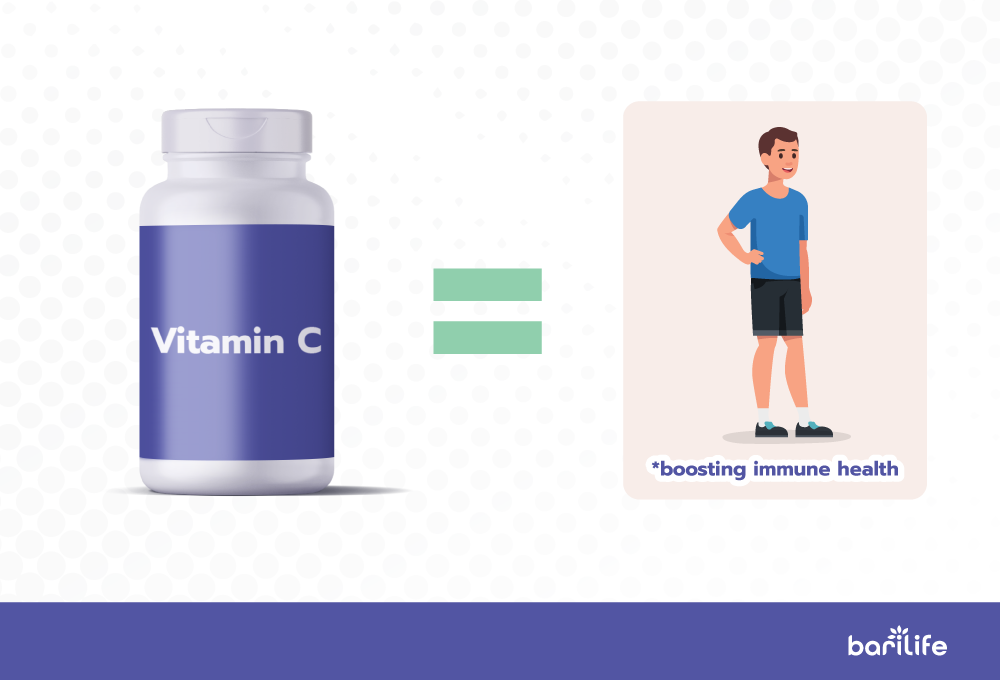
Most people consume enough vitamin C through food sources, but some people may be at risk of vitamin C deficiency. Such individuals may include those who smoke or have exposure to secondhand smoking, those with certain digestive conditions, or those with certain cancers.
Also known as ascorbic acid, plays a vital role in the synthesis of collagen, which makes it an important nutrient to support wound healing. When it comes to immune health, vitamin C’s antioxidant properties help support the reduction of inflammation in the body, and in turn, can help reduce one’s risk of developing an illness.
According to the American Society for Bariatric and Metabolic Surgery (ASMBS), vitamin C is important to account for after bariatric surgery since it helps the body absorb iron better. Without adequate vitamin C, a person may be at higher risk for iron deficiency, regardless of iron intake through food or supplements.
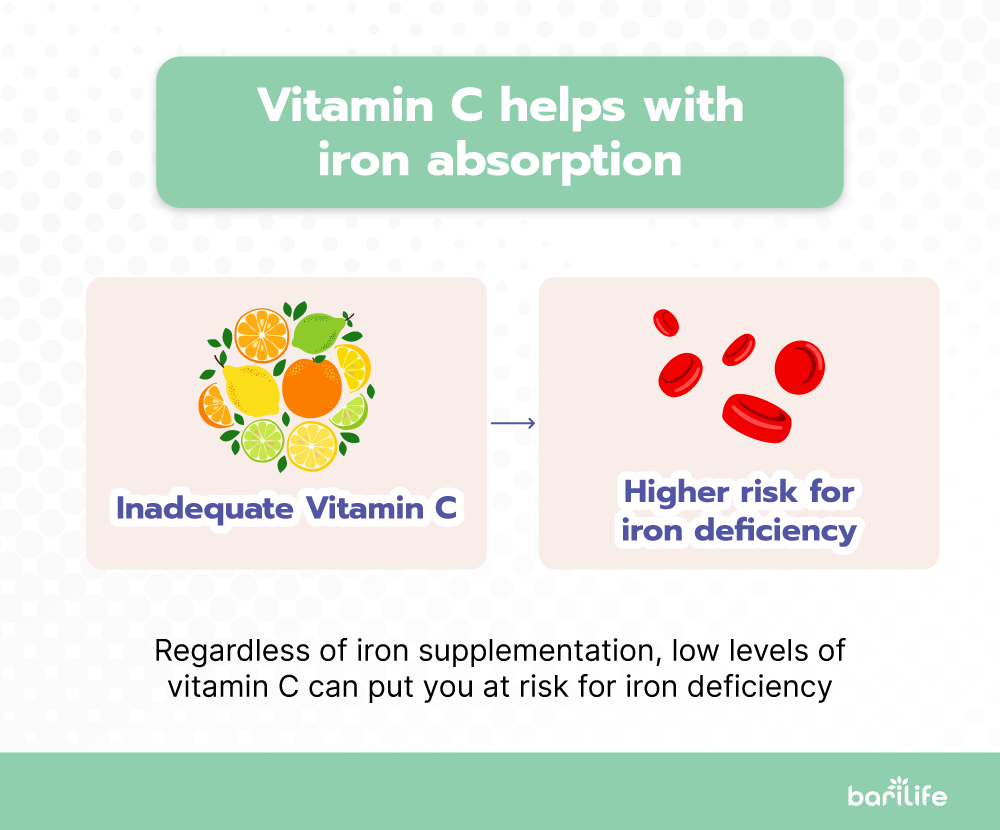
Read below to learn more about vitamin C, how much you should consume daily, signs that you may be deficient, and how you can supplement your daily routine to ensure healthy vitamin C levels today.
The role it plays in the body
Vitamin C plays many roles in the body including roles in the nervous system, immune system, bone, blood, and cartilage. Because of the antioxidant properties of vitamin C, taking adequate amounts of this vitamin can help reduce free radicals from causing cell damage, in turn lowering the risk of chronic diseases.

Therefore, those who already have chronic diseases like cancer, diabetes, and heart disease can benefit from consuming higher doses of vitamin C than recommended daily than most adults.
The ASMBS guidelines for Vitamin C after bariatric surgery
There are no specific recommendations for vitamin C intake after bariatric surgery. However, since vitamin C helps iron absorption, it’s important to consume a multivitamin that contains the recommended amount of vitamin C for most adults. For adults, most men should consume 90 milligrams daily, while women should consume at least 75 milligrams daily.
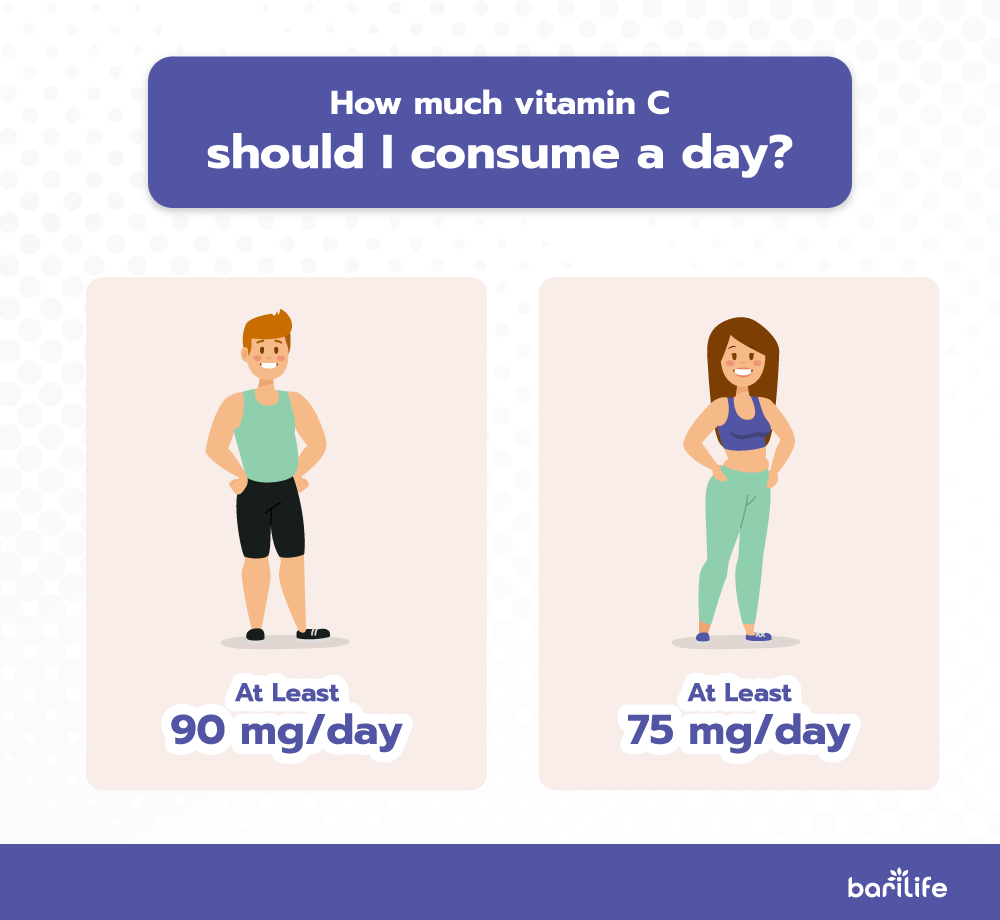
Signs, symptoms, and complications that can arise for becoming Vitamin C deficient
Most people consume enough vitamin C each day through the foods they eat. However, certain individuals that are at risk for being low in vitamin C include:
- Elderly people
- Those with alcohol use disorder, anorexia, or cancer
- People following fad diets
- Smokers of tobacco products
- Patients with renal failure
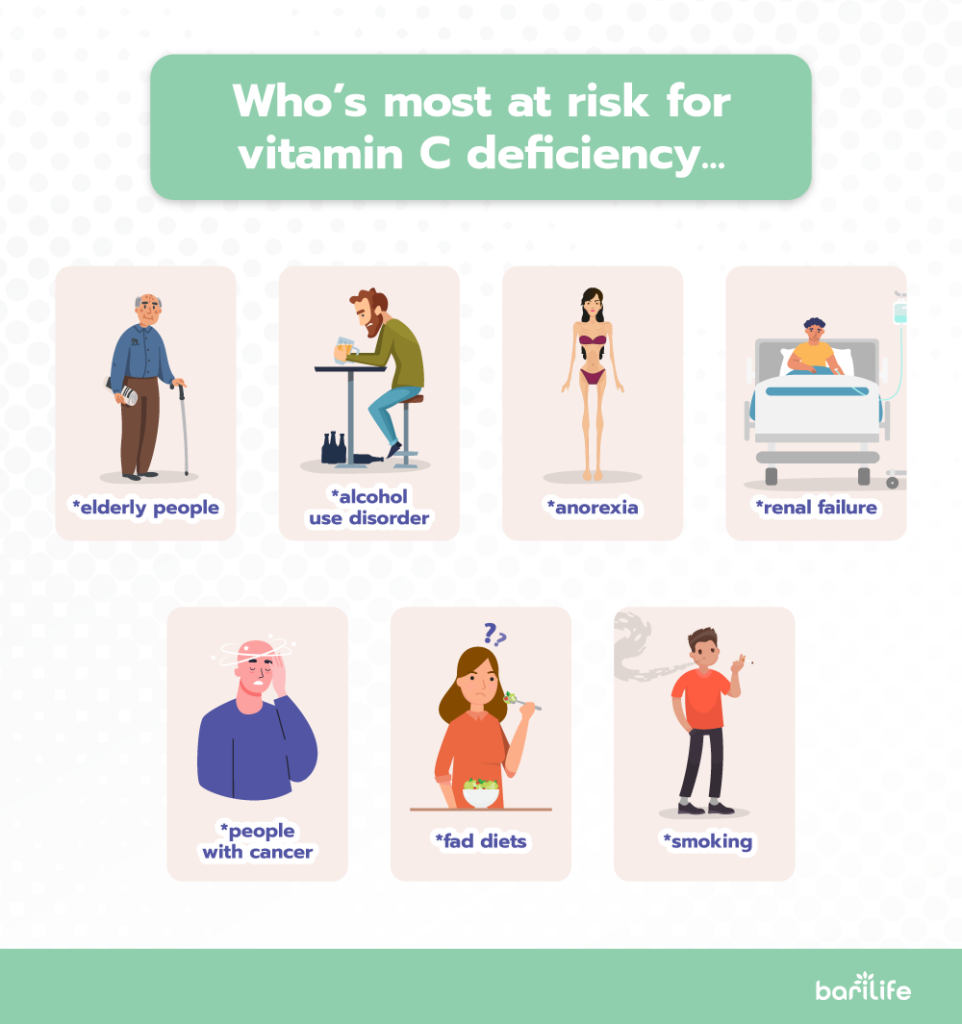
When someone is low in vitamin C, it can lead to a condition known as scurvy, which can start to develop about one month after not consuming adequate vitamin C daily. Symptoms can include:
- Fatigue
- A general feeling of being unwell
- Inflammation of the gums
- Joint pain
- Poor wound healing
- Hyperkeratosis
- Bruising
- Purpura
- Corkscrew hairs
- Depression
- Increased bleeding
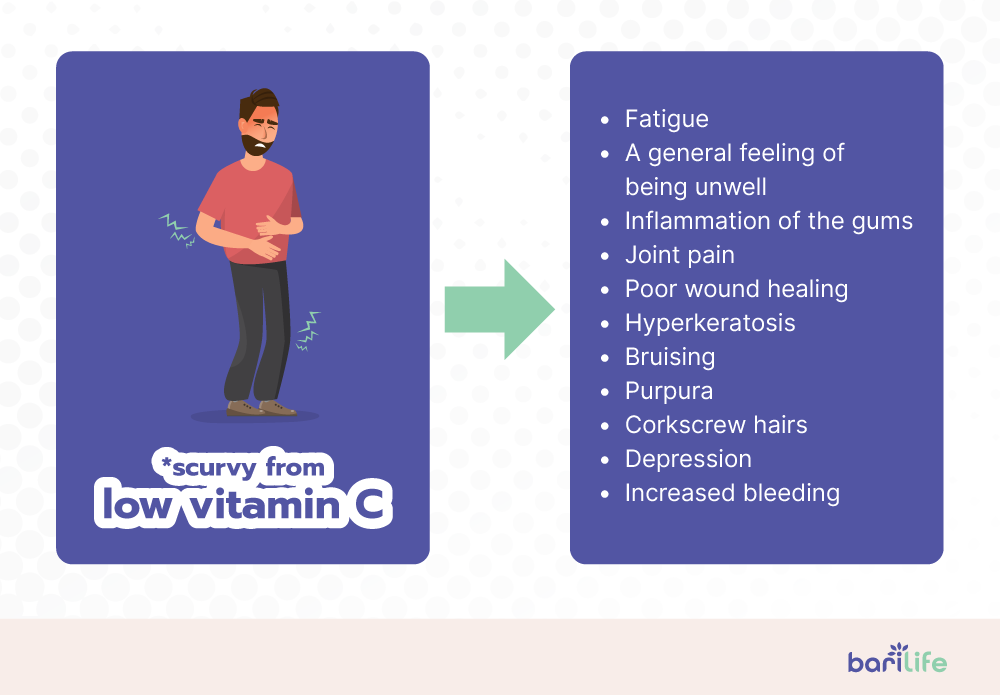
If you are deficient in vitamin C, it’s important to start consuming more vitamin C-rich foods and/or consuming a daily supplement. Since vitamin C is not stored in the body’s tissues, symptoms should improve about 24 to 48 hours after starting to consume more vitamin C in the diet or through supplementation.
Most people tolerate vitamin C supplements well. However, if you consume too much vitamin C at once, you may experience some side effects. Long-term use of taking over 2000 milligrams of vitamin C daily can lead to symptoms such as:
- Nausea
- Vomiting
- Diarrhea
- Heartburn
- Stomach cramps or bloating
- Fatigue
- Headaches
- Skin flushing
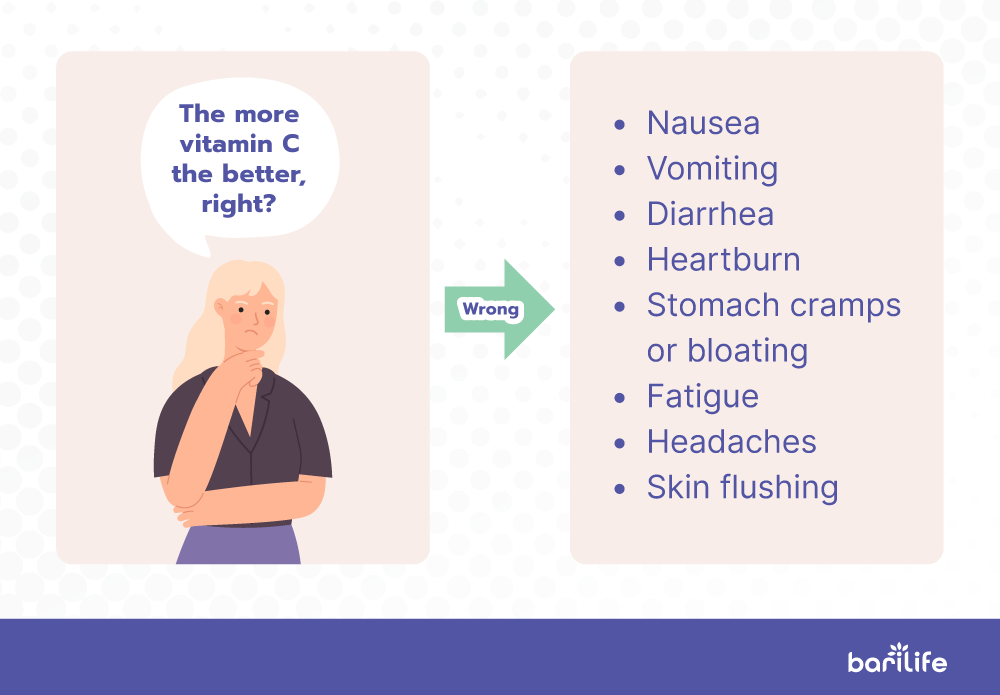
This is why it’s important to start with the recommended dosage of vitamin C for most adults. Then, if your doctor recommends you take more daily, follow the prescribed recommendations to prevent side effects.
And it’s important that if you take certain medicines like statins, estrogen, protease inhibitors, chemotherapy, or blood thinners, that you speak with your doctor first before taking vitamin C since the vitamin may impact the function and/or effectiveness of such medicines.
Bari Life vitamins has exactly what you need
If you are at risk of vitamin C deficiency, then you should ensure that you are consuming enough daily. You could consume vitamin C through food sources like oranges, grapefruit, lemon, lime, clementines, strawberries, potatoes, tomatoes, or certain leafy green vegetables, to name a few. But if you are not eating a lot of such foods after surgery, then a supplement may benefit you.
With so many dietary supplements on store shelves and online, you may not know which vitamin to choose, especially for those who have undergone bariatric surgery. Bari Life vitamins, such as Complete Bariatric Vitamin Tablets, contain 120 mg of ascorbic acid along with 45 milligrams of iron in the form of ferrous fumarate. Other nutrients in this multivitamin supplement include:
- 1500 mg calcium citrate
- 6000 IU vitamin D
- 600 mcg vitamin B12
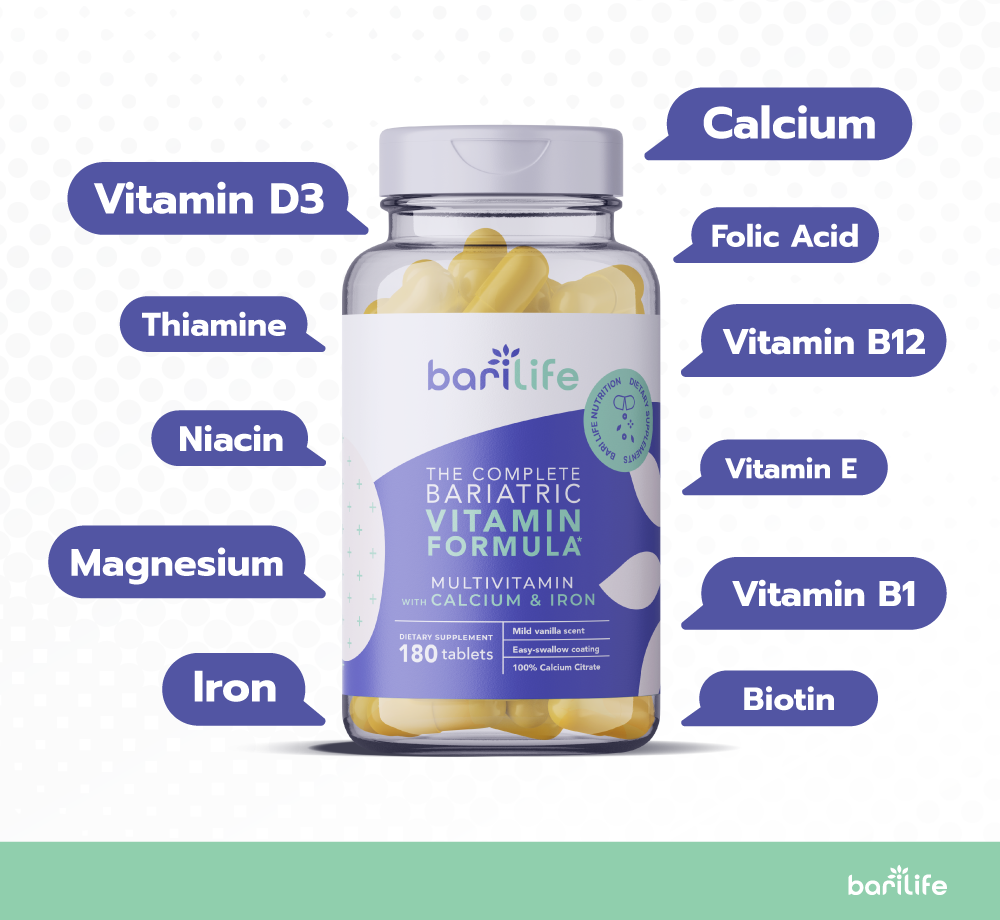
This pleasant, vanilla-scented vitamin tablet has a special coating that makes it easy to swallow, and it contains all the nutrients you need daily post-surgery. Therefore, you don’t have to worry about taking anything else to help meet your ASMBS-recommended nutrients unless your doctor recommends you do so.
If you don’t like taking pills, or have a hard time swallowing pills, then you can instead try Bariatric Multivitamin Powder that comes in fruity watermelon or lemonade flavors. Just add one serving of this powder to 8 to 10 ounces of water, and consume 1-3 scoops daily, depending on what surgery you received and related daily nutrient needs. One scoop contains 60 milligrams of vitamin C in the form of calcium ascorbate and ascorbic acid.
No matter how you choose to consume vitamin C, the important thing is that you consume it daily. Choose a form of vitamin C that is easy for you to take so that you comply with regular intake. And once you have found what form of vitamin C works for you, you will be on your way to healthy vitamin C levels for life.



What are your tips and tricks to post-bariatric success?